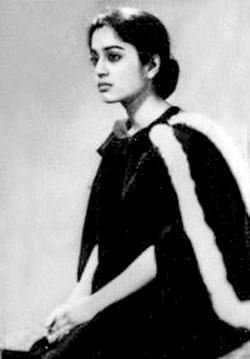Remembering Salma Sobhan

SALMA Sobhan, a pioneer of human rights activism in Bangladesh, passed away on December 29, 2003. On this day, it is vital that we do remember her, pray for her, and pay our respect to her -- while we reflect on the social changes that she had brought through her activism.
Salma Sobhan came from a prominent family in Pakistan. She was a graduate of Westonbirt School in England. She studied law at Girton College in Cambridge. In 1959, she was called to the Bar and at age 21she became the first woman barrister in Pakistan.
I got a glimpse of younger Salma Sobhan from a letter that her maternal uncle Huseyn Shaheed Suhrawardy wrote to her from jail before her marriage, in which he described her as someone who was “preternaturally transcendentally intelligent.”
Suhrawardy's elegant letter gave me an insight into Salma Sobhan's personality. He called her a 'humble little creature' who dreaded to hurt people. In the letter, he praised her humility and felt that she would be able to reach out to people and live an exemplary life.
Salma Sobhan started her teaching career at Dhaka University at age 25. She taught jurisprudence, a tough aspect of law. Her students remember her fondly. After her death, one former student wrote in a eulogy about a conversation that she had with her professor. Salma Sobhan had confided that she regretted living abroad for years. As a result, she felt she had a late start in doing important work.
Because of her sobriety and seriousness, she was well-liked and respected by her students. She often encouraged her female students to undertake activism. She counseled them on how to fight for their place in our patriarchal society.
Salma Sobhan worked at Bangladesh Institute of Law and International Affairs till 1988. She served as editor of Supreme Court Law Reports for several years. In 1986 she co-founded the Human Rights organization, Ain O Salish Kendro (ASK) and served as its executive director until her retirement.
Though Salma Sobhan came from a very privileged background, she symbolised a new spirit against the established elitism of that time. She was very interested in politics, yet her activism wasn't ignited by political ideas. With her passion and commitment for social activism, she set out to bring change for the ignored women in our society.
Salma Sobhan was troubled by the way Bangladesh's unseen and excluded women and children were trapped in society's shocking and enormous wealth gap. She saw how the underprivileged were separated and were left without any legal representation. Until this feminist lawyer with a brilliant legal mind emerged, the deprived women in Bangladesh hardly had any idea about their legal rights.
Salma Sobhan was a voice for the people who had no voice, and stood up and gave those women a status. This champion of human rights also played a very prominent role in the development of 'Women Living under Muslim Law' network.She wrote and spoke against religious injustices and extreme religious beliefs. She strongly felt about women's equal rights to inheritance.
Salma Sobhan knew that repressing women by denying their rights and by ignoring the 'disenfranchised communities' would be counter-productive for the progress of our nation.
Her background did not distort her perception about the conditions of the poor. With her passion and hard work, she brought the inequities around her into focus. Because of her sensitivity and dedication to her mission, their lives became better.
Activist Hameeda Hossain said: “She was a wonderfully warm person, with a great sense of humour. She had a lot of friends all over the world and used to spend time mailing to them. She was a very keen in swimmer and loved sight-seeing.”
Her husband Rehman Sobhan said: “Salma Sobhan considered her subordinates as friends and always believed in collective efforts to achieve success.” He revealed that more than anything his wife wanted a 'tranquil' family life.
Salma Sobhan touched many lives; she changed the fate of many. On the anniversary of her death we salute her for her service to our country.
The writer is a freelancer.

 For all latest news, follow The Daily Star's Google News channel.
For all latest news, follow The Daily Star's Google News channel. 



Comments